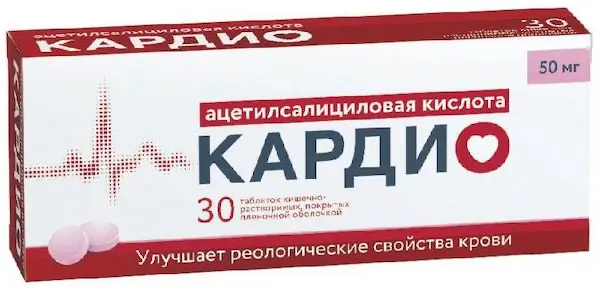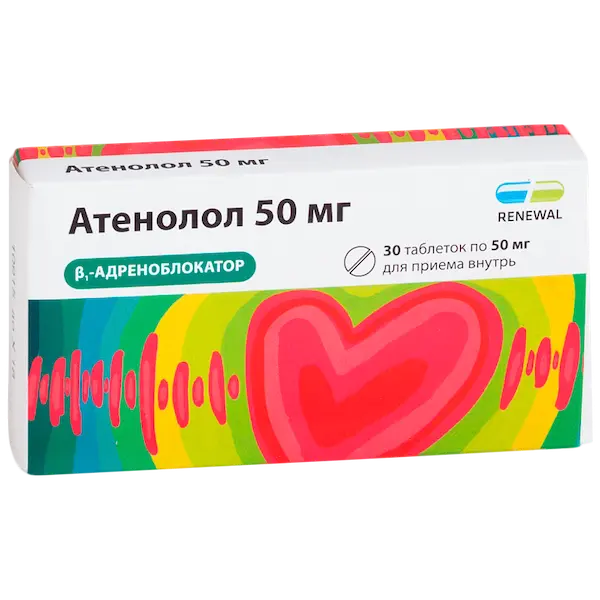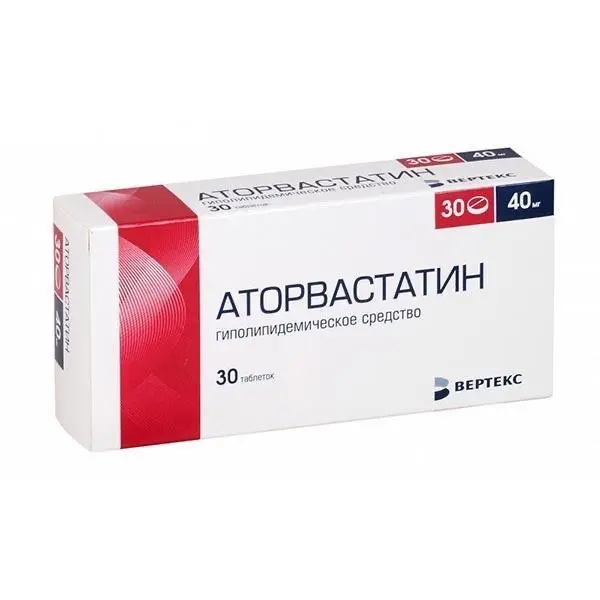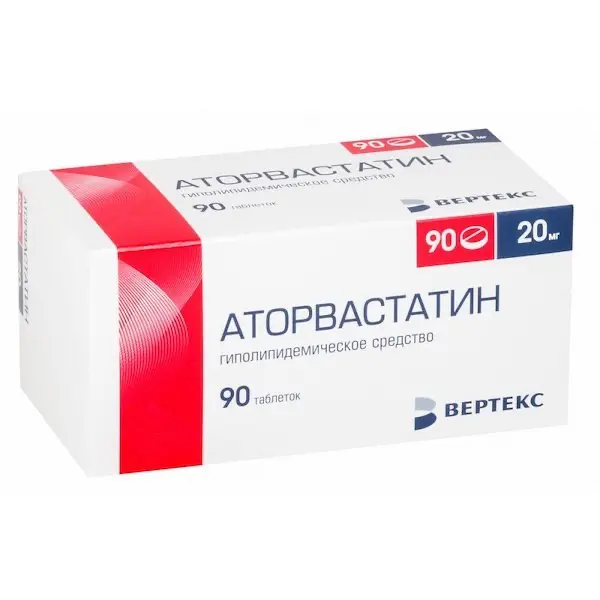Description
Acetylsalicylic acid Cardio Pharmacodynamics
Acetylsalicylic acid (ASA) is the ester of salicylic acid, and belongs to the group of non-steroidal anti-inflammatory drugs (NSAIDs). Its mechanism of action is based on irreversible inactivation of the enzyme cyclooxygenase (COX-1), which blocks the synthesis of prostaglandins, prostacyclins and thromboxane. Reduces aggregation, platelet adhesion and thrombosis by inhibiting the synthesis of thromboxane A2 in platelets.
Increases fibrinolytic activity of blood plasma and reduces the concentration of vitamin K-dependent clotting factors (II, VII, IX, X). The antiaggregant effect is most pronounced in platelets, as they are unable to re-synthesize cyclooxygenase. The antiplatelet effect develops after low doses of the drug and lasts for 7 days after a single dose. These properties of ASA are used in the prevention and treatment of myocardial infarction, coronary heart disease, and complications of varicose veins.
ASA also has anti-inflammatory, antipyretic, and analgesic effects.
Indications
– Prevention of acute myocardial infarction in the presence of risk factors (e.g., diabetes mellitus, hyperlipidemia, arterial hypertension, obesity, smoking, old age) and recurrent myocardial infarction;
– unstable angina (including suspected acute myocardial infarction) and stable angina;
– prevention of stroke (including in patients with transient cerebral haemorrhage);
– Prevention of transient cerebral circulatory disorder;
– Prevention of thromboembolism after surgeries and invasive vascular interventions (e.g., coronary artery bypass surgery, carotid endarterectomy, coronary angioplasty and stenting, carotid angioplasty)
– Prophylaxis of deep vein thrombosis and thromboembolism of the pulmonary artery and its branches (including, in case of prolonged immobilization due to extensive surgical intervention).
Contraindications
– Hypersensitivity to ASA, excipients in the drug and other NSAIDs;
– Gastrointestinal erosive-ulcerative lesions (acute phase);
– gastrointestinal bleeding;
– hemorrhagic diathesis;
– bronchial asthma induced by taking salicylates and other NSAIDs; combination of bronchial asthma, recurrent nasal and paranasal sinus polyposis with ASA tolerance;
– Combined use with methotrexate at a dose of 15 mg per week or more;
– pregnancy (I and III trimesters) and breast-feeding;
– under 18 years of age;
– severe renal insufficiency (creatinine clearance (CK) less than 30 ml/min);
– severe hepatic insufficiency (grade B or higher on the Child-Pugh scale);
– chronic heart failure (CHF) of functional class III-IV according to NYHA classification.
Caution:
Gout, hyperuricemia, gastric and 12 duodenal ulcer or gastrointestinal bleeding (history), renal failure (CK more than 30 ml/min), hepatic failure (below Child-Pugh class B), bronchial asthma, chronic respiratory diseases, hay fever, nasal polyposis, drug allergies, including to a group of NSAIDs, narcotic and non-narcotic analgesics, anti-inflammatory, anti-rheumatic drugs; Pregnancy (II trimester), anticipated surgical interventions (including minor ones, e.g. tooth extraction); concomitant use with the following drugs (see Section Interaction with other drugs) (see section Interaction with other medicinal products):
– methotrexate at a dose of less than 15 mg per week;
– with anticoagulants, thrombolytics or antiaggregants;
– With NSAIDs and salicylic acid derivatives in high doses;
– digoxin;
– hypoglycemic oral hypoglycemic agents (sulfonylurea derivatives) and insulin;
– with valproic acid;
– with alcohol (alcoholic beverages in particular);
– with selective serotonin reuptake inhibitors;
– With ibuprofen.
Pregnancy and lactation:
Pregnancy .
Use of high doses of salicylates in the first 3 months of pregnancy is associated with an increased incidence of fetal defects (cleft palate, heart defects). Prescribing salicylates in the first trimester of pregnancy is contraindicated.
In the last trimester of pregnancy, salicylates at high dose (more than 300 mg/day) cause inhibition of labor activity, premature closure of the fetal arterial duct, increased bleeding in mother and fetus, and administration just before delivery can cause intracranial hemorrhage, especially in premature babies. Prescribing salicylates in the last trimester of pregnancy is contraindicated.
In the second trimester of pregnancy, salicylates may be prescribed only after a strict assessment of the benefits to the mother and risks to the fetus, preferably in doses not exceeding 150 mg/day and for short periods of time.
Breastfeeding period
Salicylates and their metabolites penetrate into breast milk in small amounts. Accidental intake of salicylates during breastfeeding is not accompanied by the development of adverse reactions in the baby and does not require discontinuation of breastfeeding. However, if the drug is used for a long time or if it is prescribed in a high dose, breastfeeding should be stopped immediately.
Dosage and administration
- The drug CARDIO Acetylsalicylic Acid is desirable to take before a meal with plenty of fluid. Do not take the drug on an empty stomach!
- The drug is intended for long-term use. The duration of therapy is determined by the doctor.
– Prevention of acute myocardial infarction in the presence of risk factors:
50 – 100 mg per day or 300 mg every other day.
– Prevention of recurrent myocardial infarction, unstable and stable angina pectoris:
50 to 100 mg daily or 300 mg every other day.
– Unstable angina pectoris (when acute myocardial infarction is suspected): the initial dose of 50-300 mg (the first tablet should be chewed for faster absorption) should be taken by the patient as soon as possible after the development of acute myocardial infarction is suspected. A dose of 200-300 mg/day should be maintained for the next 30 days after the development of myocardial infarction. After 30 days, appropriate therapy should be administered to prevent recurrent myocardial infarction.
– Prevention of stroke and transient impairment of cerebral circulation:
50-100 mg daily or 300 mg every other day.
– Prevention of thromboembolism after surgery and invasive vascular interventions:
50 to 100 mg daily or 300 mg every other day.
– Prevention of deep vein thrombosis and pulmonary artery thromboembolism and its branches: 100-200 mg daily.





